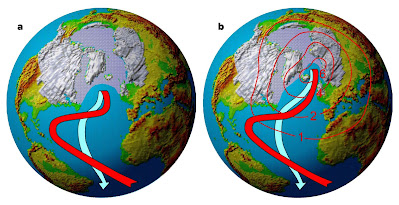In a recent article in Science Advances, "Physics-based early warning signal shows that AMOC is on tipping course," René M. van Westen, Michael Kliphuis, and Henk A. Dijkstra try to predict the date of collapse for the AMOC. It is comforting that their simulations show that the tipping point will occur no earlier than 2100. Still, they also warned that their stimulation was incomplete due to the lack of data, and the tipping may occur earlier or later (?).
However, there are reasons to take these predictions with a grain of salt since the Earth system is currently blowing up all models with its incredibly rapid heating.
2023 was a year with air and ocean temperatures far beyond all normal fluctuations, and 2024 "promises" to be even hotter. March of this year in Germany was four full degrees Celsius warmer than the long-term average from 1961 to 1990.
There will most likely be even more extreme rainfall events this year than in
the catastrophic year of 2023. At the same time, the polar ice is melting much
faster and regenerating much more slowly than in the past. This, among other
things, makes the seawater in the polar regions less salty.

|
|
Scandinavia and the British Isles experience permafrost, while the average annual temperature in the continental coastal regions stays below 0 °C. (©van Westen et al.) |
*



No comments:
Post a Comment